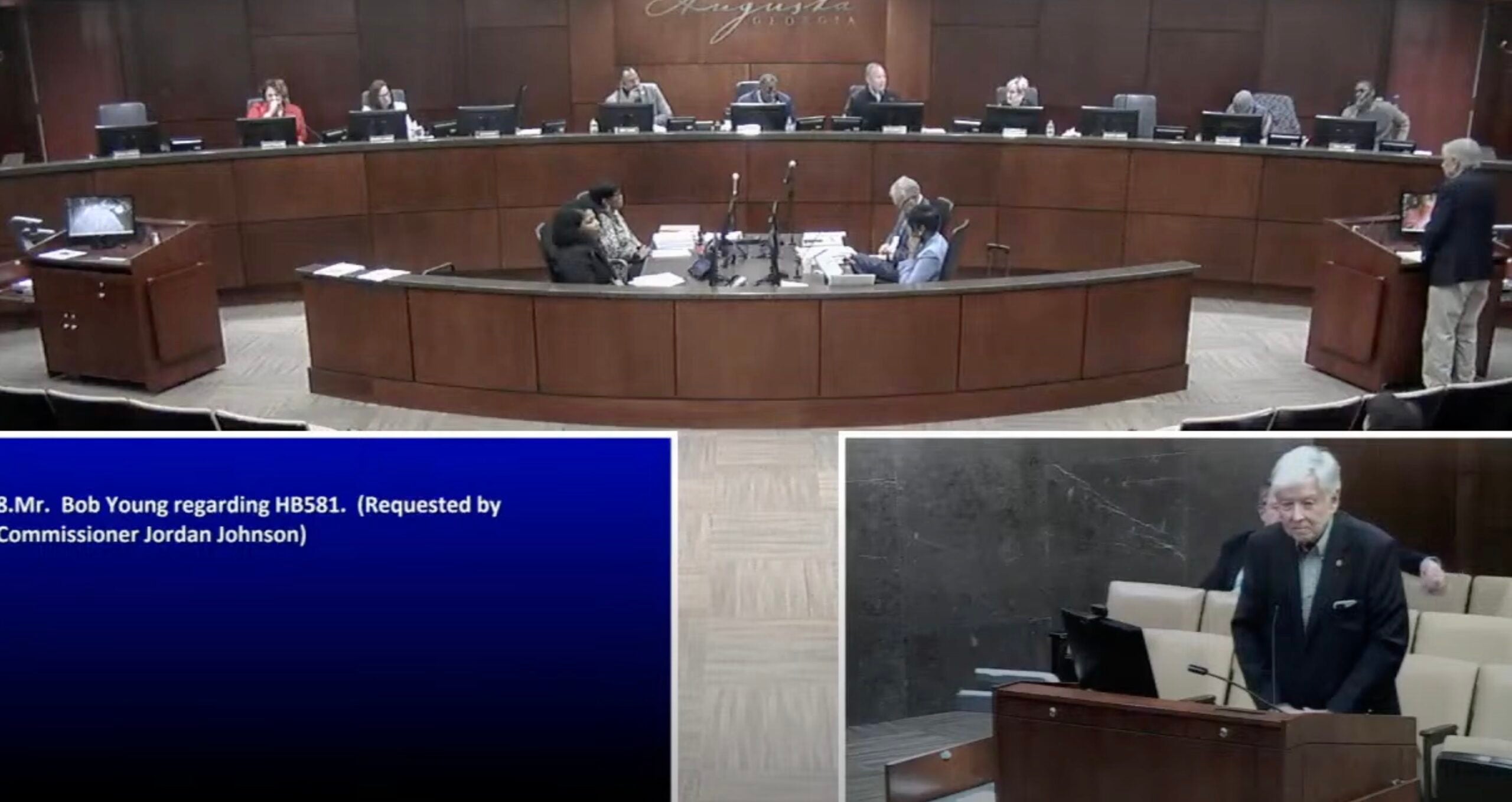Augusta commissioners continue to mull over the floating homestead exemption but heard arguments from two sides Monday.
House Bill 581, which voters approved by referendum Nov. 5, adds a floating homestead exemption to properties lived in by their owners. It would keep tax increases based on reassessments to a rate based on inflation, and gives the government the opportunity to levy another sales tax.
Several local governments, including Augusta, are planning for what the referendum allowed, which is to opt out by holding three public hearings.
“I just don’t understand why anyone would consider taking the voices of 48,000 Richmond countians and tossing them away,” said former Augusta mayor Bob Young, who has emerged as an outspoken critic of opting out. In the referendum, some 62% of Richmond County voters said yes to the tax break.
How would voters feel, Young said, if the commission decided Mayor Garnett Johnson did not need a vote, despite their approval of giving him one in a referendum last year.
Businesses not eligible for the homestead exemption, meanwhile, get “a Christmas tree” of perks and exemptions in Augusta-Richmond, Young said.
From exemptions on construction projects, business licenses and fees and energy used in manufacturing to tax abatements and historic tax credits, “businesses have plenty of tax exemptions that homeowners don’t have,” he said.
Commissioner Wayne Guilfoyle, who said both he and his wife voted against the exemption, said he feared “the ripple effect” although it’s unclear what the ripples will be. The school board, for instance, is “undecided, because they don’t know the other side of the coin,” he said.
Johnson pointed to the clause in the referendum allowing any city, county, school district or consolidated government to opt out.
“Here’s the most important part,” he said.
Commissioner Francine Scott said many among the 62% were “not the homeowners” eligible for the tax break.
Former Augusta Metro Chamber of Commerce President and CEO Sue Parr spoke as a consultant on behalf of the chamber, which favors opting out.
“Rather than paint yourself in a corner, we would ask that the stakeholders have an opportunity to come out” and speak at the public hearings, Parr said.
Parr said Augusta already has the means to implement a floating homestead exemption but “you can never do it the other way around” after not opting out. “You will be living with this forever.”
She said the commission already has the ability to protect homeowners from runaway inflation, and that’s by adopting the rollback millage rate, which it has done the last two years.
Parr said the floating homestead exemption “doesn’t make taxes and costs go away, it simply rearranges everything.” With homestead property capped, “the commercial properties are going to have an higher rollback rate based on that floating exemption and will ultimately pay a higher price.”
Opting out is “not a tax break for the business community,” nor should businesses “take it on the chin” in a tax hike, Parr said. “It simply is a matter of assessing equitable, fair property tax values on property whether it’s commercial or homestead,” she said.
Downtown small businesses, particularly retail, are in “the fight of their lives right now,” while raising taxes on apartments puts a squeeze on military families, healthcare workers, students and others who need that kind of housing, Parr said.
Administrator Tameka Allen said discussion about holding the hearings would continue this week.











